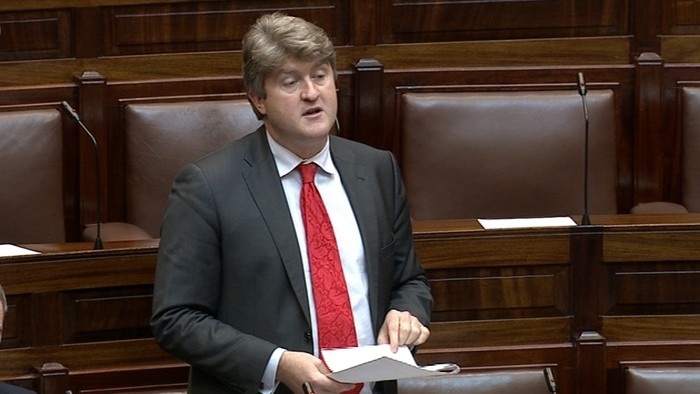Independent TD Michael McNamara has raised questions concerning the legality of church lockdowns in the event of a public health emergency.
Taking note of a disparity between the Constitution and the European Convention on Human Rights, Mr McNamara has pointed out that “there is clearly a legal issue” about locking down on the basis of public health.
Speaking to The Irish Catholic, Mr McNamara – who is chairman of the Oireachtas committee on coronavirus said: “In short, the Irish Constitution, on its literal interpretation, provides very broad guarantees regarding freedom of worship, and that it can be limited only on the basis of public morality and public order. It doesn’t provide for limitations on the basis of public health, unlike, for example, the European Convention on Human Rights, which provides obviously for freedom of religion as well, but provides that it can be limited on the basis of public health, public order, or public morality.”
Limitation
“Given that the European Convention provides three bases – public order, public morality and public health – one would have to assume that they’re three different bases for limitation,” he said.
“If public order and public health have two different meanings in the Convention, then it’s difficult to see how they could be conflated for the purposes of the Constitution. It’s like they’d be assigned the same meaning,” Mr McNamara said.
Understanding this, he acknowledges that there are clear legal questions to be asked in the event of a church lockdown on the basis of public health.
“On the plain meaning of it, there’s clearly an issue with limiting worships on the basis of public health. In fairness, there’s been a huge inconsistency in the regulations.”
Admitting that there’s no anticipating how the courts would approach such a case, he said, “There would be very clearly a question mark over the legality or lawfulness of any restrictions on freedom of worship in Ireland based on Covid-19, and in particular, draconian restrictions. There would clearly have to be a legal question mark over them…there is clearly a legal issue.”


 Clare TD Michael McNamara
Clare TD Michael McNamara 